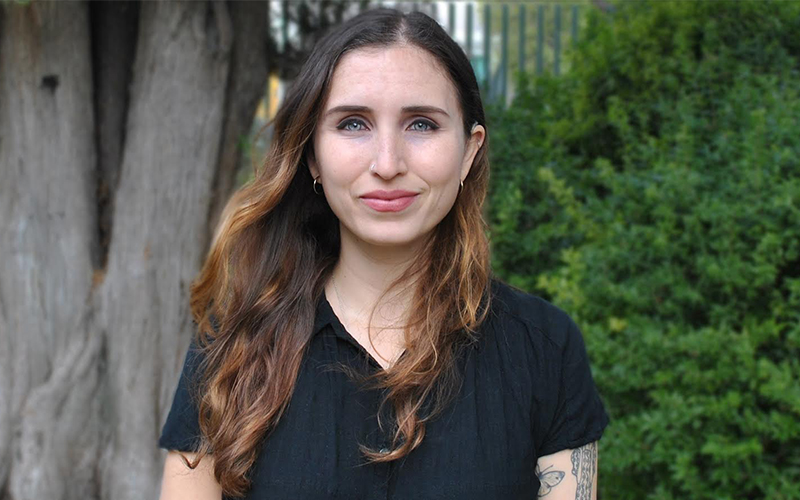About
Featured Diverse Practitioners
Ernie Wong, FASLA
Ernest C. Wong, founder and principal of site design group, ltd. (site), has been instrumental in the evolution of the firm as a multi-cultural cutting edge design entity and fostering the landscape architecture profession in the City of Chicago. In managing the firm for over 30 years, site has established a reputation for creative design solutions and developing thoughtful, community-oriented urban spaces.
Through professional and service leadership, Mr. Wong has advocated for and helped revitalization efforts of numerous Chicago neighborhoods, including Chicago’s Chinatown, which has evolved through transformative, community-oriented projects, including the multi-phased Ping Tom Memorial Park, Wentworth Avenue Streetscape, the Chinatown Vision Plan, the Chinatown Branch Library, and the ongoing Wells and Wentworth Connector.
A strong proponent of civic and community engagement, Wong sits on the board of numerous service organizations and professional juries including the Driehaus Award for Architectural Excellence in Community Design, Chinese American Service League, Near South Planning Board, and the Chicago Landmarks Commission. In addition, Mr. Wong is a frequent speaker at universities as well as design, business, and diversity conferences. This year, he served as the keynote speaker at the Chicago Loop Alliance’s Annual Meeting, discussing the future of retail and public spaces.
Read more from Ernie Wong, FASLA:
- Let's Destroy the Myth of Asian Americans as the Model Minority (April 2021)
- America's Chinatowns: Identify, Belonging, and the Future of Place (Video May 2020) Ernie Wong, FASLA, Jenn Low, PLA, Yu-Chung Li, ASLA, and Jim Lee, ASLA led a four-part webinar series about the past, present, and future of Chinatowns and drew analogies to other neighborhoods like them that are subject to the ongoing forces of gentrification driving neighborhood change.
 Alexa Vaughn, Associate ASLA
Alexa Vaughn, Associate ASLA
Alexa Vaughn, Associate ASLA
Alexa Vaughn, Associate ASLA, is a Deaf landscape designer for OLIN in the Los Angeles office, and a 2020 LAF Olmsted Fellow. In 2019, she advised the ASLA Universal Design Guide, and currently serves on the ASLA Professional Practice Committee and Urban Design PPN Leadership team. She is actively involved in OLIN Labs, through the People Lab division, which focuses on social justice and human relationships to the landscape.
Her expertise lies in design and research for the Deaf and Hard of Hearing community; she has worked on applying principles of Gallaudet University’s DeafSpace Design Guidelines to landscape architecture and urban design. This work began in her journal article, “DeafScape: Applying DeafSpace to Landscape,” published by the University of California, Berkeley’s GroundUp Journal (Issue 07, 2018).
Her current research through LAF – Design with Disabled People Now – branches into the broader spectrum of disability, with a focus on the inclusion of disabled people in the design process. In mid- to late 2020, she will publish a website (www.designwithdisabledpeoplenow.com), which will provide a series of toolkits and resources for abled designers and planners to use in the collective creation of a more accessible public realm. With this website, she will share her ideas for using Universal Design as a creative tool to go beyond the bare minimums of the ADA Standards. The disabled community is the largest and most intersectional minority group, globally. Consequently, Alexa believes that access to public space is a civil right, not a privilege, and that designers and planners should begin to include disabled people in their definition of diversity.
Alexa attended the University of California, Berkeley where she obtained a B.A. in Landscape Architecture with a minor in Conservation and Resource Studies in 2016, and a Master of Landscape Architecture in 2018.
Read more from Vaughn-Brainard:
Media:
David Rubin (photo by Sahar Coston-Hardy)
DAVID RUBIN Land Collective
David A. Rubin, FASLA, FAAR, is the founding principal of DAVID RUBIN Land Collective.
He is recipient of the 2011-2012 Garden Club of America Rome Prize in Landscape Architecture from the American Academy in Rome and is a Fellow of the American Society of Landscape Architects. David’s visionary contribution to the field in “empathy-driven design” is a hallmark of the studio, earning increasing renown for fusing issues of social justice in cities with excellence in the design of public spaces. His work has received awards and honors from the American Society of Landscape Architects and the American Institute of Architects.
David serves as Design Critic at Harvard University Graduate School of Design and is presently the Nadine Carter Russell Chair in Landscape Architecture at Louisiana State University.
Our Ethos
DAVID RUBIN Land Collective emphasizes holistically-sustainable design principles, with social sustainability leading the design effort. Life is what happens between buildings. Since a successful space is one that’s well attended, the success of our design depends on how people engage each other in it, no matter what the scale. It is in the context of the connective tissue that DAVID RUBIN Land Collective works as a studio, bringing people together in a positive dialogue. Design decisions are made with the desire to create an equitable environment in which very different people might come together.
The name Land Collective derives from the understanding that innovation is achieved through inclusive collaboration and that design excellence comes from demonstrable leadership, the synthesis of multiple disciplines, and active listening to the lived experiences of the communities we serve. Landscape requires a spectrum of thoughtful ideas in order to be successfully and equitably rendered. This collective consciousness is necessary to lift landscape to the highest ideals.
Land Collective is a nationally-certified LGBT Small Business Entity (SBE), joining a handful of design studios who have affiliated with the National LGBT Chamber of Commerce (NGLCC).
Our Landscape Designer, Mackenzie Wendling, shared his thoughts on what it means to him to be a part of Land Collective, and he reminds us of the work that still needs to be done:
“Working in a supportive environment with queer role models, mentors, and colleagues has given me license to express myself creatively and authentically. As an employee of an empathy-driven studio that designs for and with diverse communities, authenticity is critical to our process. Although society has come a long way, it is important to remember that many designers are denied the privilege – or better yet, the right – to express their identity in the workplace. In most states, including my home state of Kansas, it is legal for privately-owned businesses to refuse training, deny promotion, or fire employees for identifying as lesbian, gay, bisexual, transgender, or queer. At Land Collective I can express myself without repercussion, unfortunately, this is the exception. The fight for LGBTQ equality is not over.”
Rachel Spencer, a Landscape Designer and MLA graduate from the University of Oregon, voices her commitment to empowering others as she looks for equitable design solutions in her own work at Land Collective:
“My lived experiences have positioned me with a unique perspective; one that situates me at the intersection of queerness, blackness, and gender. In a country, where we have been struggling to hear from marginalized voices, it is important to acknowledge that the gay liberation movement was started by protests led by Black members of the LGBTQ community. More than ever we need to listen, make space to empower and amplify the voices of underrepresented populations. Working for a firm centered around human-centered design thinking, our practice of community engagement requires active listening and a humble approach. Demonstrated by our current work in a historically Black neighborhood in Old Redford, Detroit, MI, we are collaborating with community members at all levels to solve problems, from community-led initiatives to co-creating an overall design strategy. This level of engagement, where multi-faceted plans are driven by input from the voices of a community, is one way we can take action in cultivating a more equitable future.”
Our Work
The studio is recognized for combining design problem-solving with significant public engagement processes, creating landscapes that serve to identify the constituents who inhabit the resultant spaces. Learn more about Land Collective projects, including Franklin Park and the National World War I Memorial in Washington, D.C. and more.
